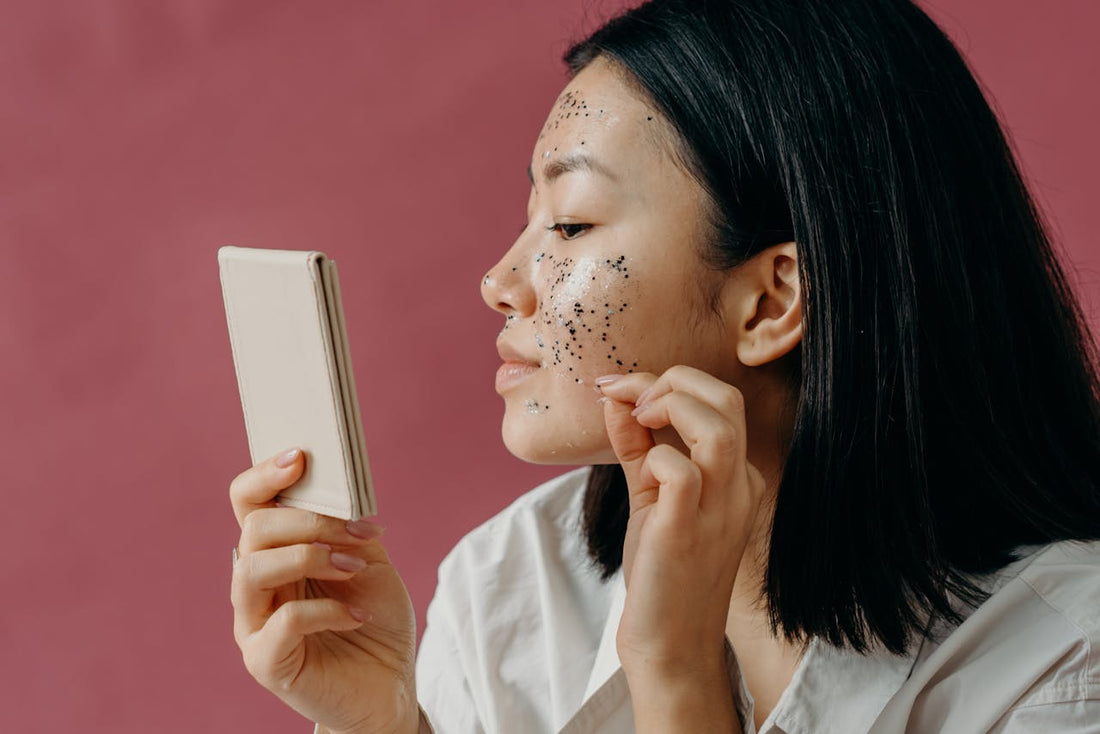
Why My Skin Is So Itchy
Share
Why My Skin Is So Itchy? Understanding the Causes and Solutions
Itchy skin can be an incredibly frustrating experience. Whether it’s a mild annoyance or a persistent issue, understanding why your skin feels this way is the first step to finding relief. Let’s explore the potential reasons behind itchy skin and what you can do about it.
Common Causes of Itchy Skin
1. Dry Skin (Xerosis)
Dry skin is one of the most common causes of itchiness, especially during the colder months or in dry climates. When your skin lacks moisture, it can feel tight, rough, and itchy. Factors like indoor heating, harsh soaps, and long hot showers can strip your skin of its natural oils, worsening the condition.
2. Allergic Reactions
Itchy skin can result from an allergic reaction to various irritants, including certain skincare products, detergents, or even specific foods. Allergic contact dermatitis occurs when your skin reacts to substances like fragrances, preservatives, or metals, causing redness, itching, and sometimes a rash.
3. Eczema (Atopic Dermatitis)
Eczema is a chronic skin condition that causes itchy skin. It’s often linked to an overactive immune response, genetic factors, or environmental triggers like allergens and irritants. Itchy skin from eczema can become unbearable if not managed properly.
4. Psoriasis
Psoriasis is a condition where skin cells multiply faster than usual, leading to red, scaly patches. These patches can be intensely itchy and are often found on the scalp, elbows, knees, and lower back. Psoriasis is linked to immune system dysfunction and may require specialized treatment.
5. Bug Bites
Insect bites from mosquitoes, fleas, or bedbugs can cause localized itching. The body reacts to the insect’s saliva, leading to an itchy bump. Scratching these bites can worsen the inflammation or cause infection.
6. Hives (Urticaria)
Hives are itchy, red welts on the skin caused by an allergic reaction, stress, or even temperature changes. They usually appear suddenly and can be triggered by food, medications, or environmental factors.
7. Skin Infections
Bacterial, fungal, or viral infections can lead to itchy skin. Athlete’s foot, ringworm, or candidiasis are examples of fungal infections that cause intense itching. Bacterial infections like impetigo or viral ones like chickenpox also result in itchy symptoms.
8. Underlying Health Conditions
Sometimes, itchy skin can indicate an underlying health issue. Conditions such as kidney disease, liver problems, thyroid disorders, or diabetes can cause systemic itching. If you have persistent itchiness without a clear cause, it’s essential to consult a doctor.
9. Stress and Anxiety
Psychological factors like stress or anxiety can sometimes trigger or worsen itchiness. This type of itching doesn’t always have a visible rash or skin changes but can feel very real and uncomfortable.
How to Relieve Itchy Skin
1. Keep Your Skin Moisturized
Use a high-quality moisturizer immediately after bathing to lock in moisture. Opt for products with ingredients like hyaluronic acid, glycerin, or ceramides to hydrate and repair the skin barrier.
2. Avoid Harsh Products
Switch to gentle, fragrance-free cleansers and laundry detergents. Harsh chemicals can irritate the skin and increaseitchiness.
3. Take Lukewarm Showers
Hot water removes natural oil from skin. Opt for lukewarm showers and limit their duration to 5-10 minutes.
4. Use Anti-Itch Creams
Over-the-counter creams with ingredients like hydrocortisone or calamine can provide temporary relief. For severe itching, a doctor might prescribe stronger medications.
5. Address Allergens
Identify and eliminate potential allergens in your environment. If you suspect a food or product allergy, consider consulting an allergist for testing.
6. Stay Hydrated
Drink plenty of water to keep your skin hydrated. Dehydration can make dryness and itchiness worse.
7. Protect Your Skin
Wear loose, breathable clothing made from natural fibers like cotton to minimize irritation. Also, use sunscreen to protect your skin from UV damage, which can worsen itching.
When to See a Doctor
Persistent or severe itchiness, especially without an apparent cause, warrants medical attention. If you notice symptoms like swelling, oozing, fever, or weight loss along with the itching, consult a healthcare provider immediately.
FAQs About Itchy Skin
1. Can stress really cause itchy skin?
Yes, stress can cause or worsen itchy skin due to the release of stress hormones like cortisol. These hormones can make your skin more sensitive or trigger inflammatory responses, leading to itching.
2. Why does my skin itch more at night?
Itchy skin often feels worse at night due to the body’s natural circadian rhythms. Your skin’s temperature and blood flow increase during the night, which can heighten the sensation of itching.
3. Are there foods that can make my skin itchy?
Certain foods, especially those you’re allergic to, can cause itching. Common culprits include shellfish, nuts, dairy, and gluten. Histamine-rich foods like aged cheese and alcohol can also trigger itchiness in sensitive individuals.
4. How can I stop myself from scratching?
Distract yourself by keeping your hands busy or applying a cold compress to the itchy area. Trim your nails to minimize skin damage if you do scratch, and consider wearing gloves at night to prevent unconscious scratching.
5. Can dehydration cause itchy skin?
Yes, dehydration can make your skin dry and flaky, leading to itchiness. Ensure you drink enough water daily and use a good moisturizer to combat dryness.
6. Is itchy skin always a sign of an allergy?
No, while allergies are a common cause, itchy skin can result from various factors like dryness, infections, or systemic health conditions. Identifying the root cause is the best option
Itchy skin can disrupt your comfort and daily life, but understanding the cause and taking appropriate steps can bring relief. If over-the-counter remedies and lifestyle changes don’t work, consult a dermatologist to uncover and address the underlying issue.
